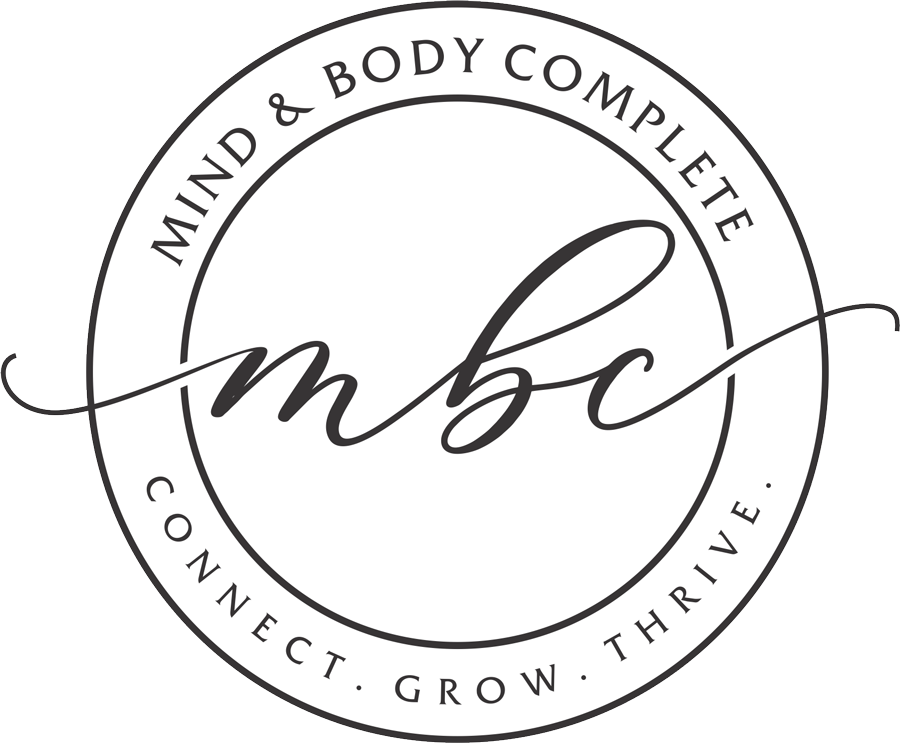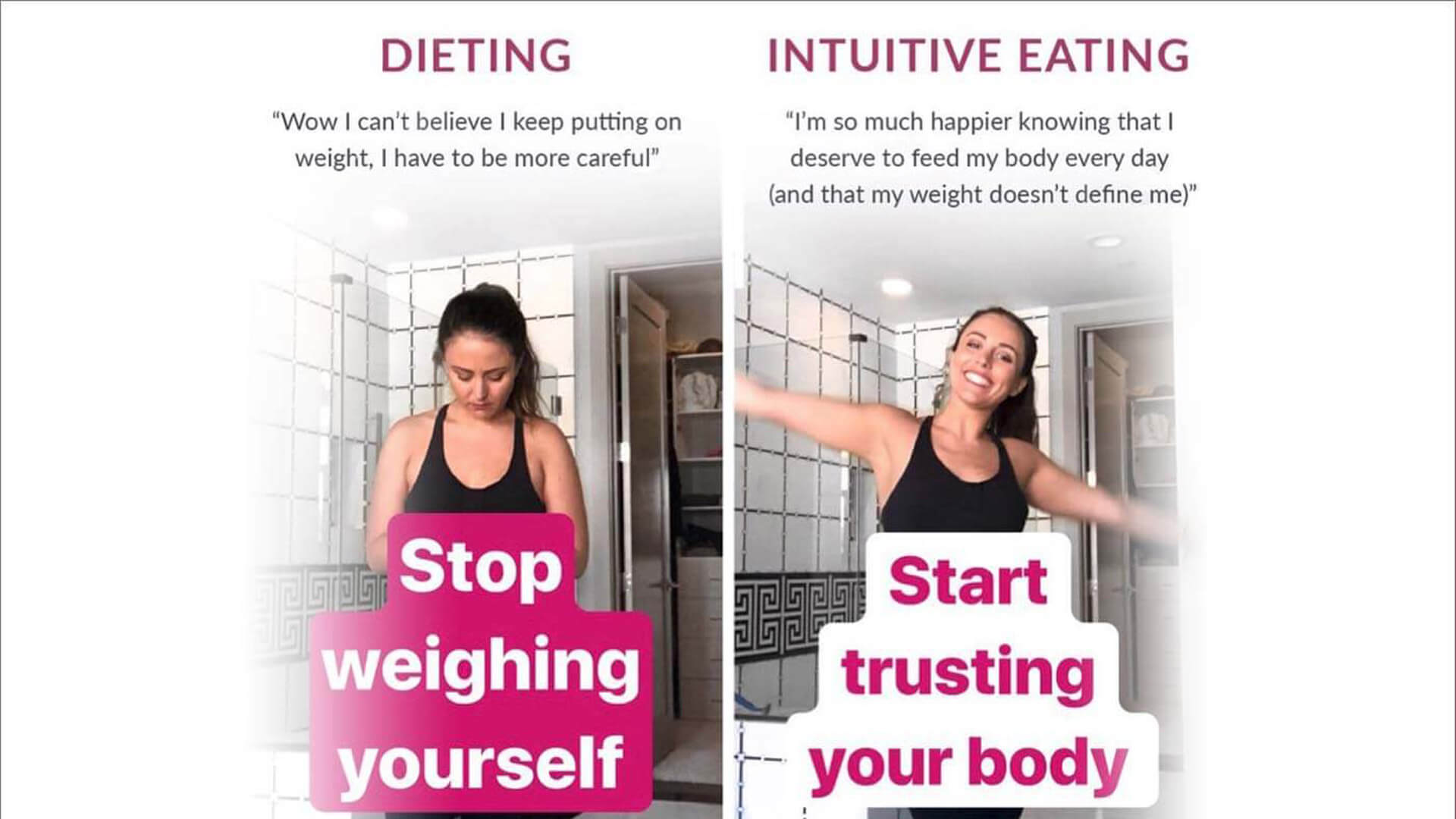Dieting vs. Intiutive Eating
“Glow up” at any size – My biggest takeaways from a conversation with an intuitive eating dietitian
The majority of fitness blogs on Instagram have similar aesthetics: middle class women showing off their picturesque bodies and lifestyles while donning workout gear. So when Dee ran across a fitness blogger that broke the mold by showing pictures of the blogger eating cookies and telling followers to fix their inner dialogue rather than their body, she was intrigued.
We reached out to blogger, RDN and intuitive eating coach Whitney Catalano to learn more about her health and wellness philosophy, and we had the opportunity to interview her on our Happy Hour podcast. Rather than pushing her clients towards new diets or exercise regimen, she helps them heal their relationship with food so they they can “glow up” at any size.
Here are five of my biggest takeaways from our conversation:
1. Most diets don’t work
Studies have shown that a whopping 95% of people who diet regain the weight in five years. That’s why Whitney advocates for intuitive eating rather than dieting. Intuitive eating is all about healing our relationship with food and using our bodies as a as guide for how and when we should eat. Whitney believes people should seek to be healthy at any weight. Intuitive eating is about eating for both nourishment and enjoyment, while exercising intuitively and becoming aware of your body’s food preferences and fullness cues. She believes intuitive eaters bodies will eventually settle at the weight that body was meant to be, which will be different for each individual woman.
2. Intuitive eating supports social justice and inclusivity
This statement caught me by surprise at first, but the “face” of the health industry has long been thin, white, middle-class or well-off women, which leaves a lot of bodies out of the conversation entirely, not to mention a lot of dietary choices seen as inherently bad. As an intuitive eating coach, Whitney looks at how things like race, ability and body type play a role in our relationship with our food choices and way we see our bodies.
3. Fat is not a bad word
“I feel fat.” is something that most women have said at some point in their lives, as if “fat” was not a substance in our bodies, but an emotion. Whitney penned a workbook to help women work through their feelings to learn what they really mean when they say they feel fat. Usually, they are feeling unloved, unaccepted or simply full.
4. Food is more than fuel
Most diet and exercise programs shame women for all forms of emotional eating, as if food is only fuel for your body and should never be enjoyed. Whitney believes food is inherently celebratory, it’s why we gather around the table on birthdays and holidays. Our favorite foods can even be cultural, connecting us to family traditions. While binge eating or eating too little food is never a good idea, neither are diet plans that take away the joy and emotions surrounding eating. Being mindful of why you are eating and aware when you are eating too much is a much better solution than treating food like pure fuel.
5. It’s okay to not be okay
Most women struggle with body image issues. In addition, food intake is one of the few things in life that we feel we can control, which can lead to disordered eating. Instead of focusing solely on weight loss, consider how you can better yourself and your relationship with food. Are any of your habits unhealthy? Invest in yourself by taking time to heal your relationship with you own body. This could mean therapy or connecting with an wellness expert or coach. Taking time to better yourself, both physically and mentally, is the best gift you can give yourself, and It’s priceless.
For more information on Whitney Catalano follow her Instagram at @trustyourbodyproject, or read her blog at whitneycatalano.com.
Listen to the whole show HERE.







